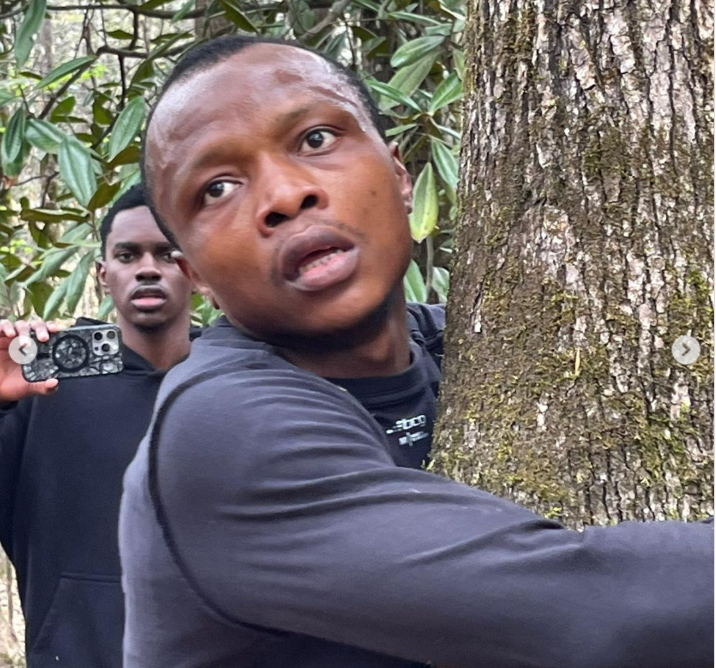Headline
FG Approves N110bn For Youth Development Fund, Agric Scheme
Published
1 month agoon
By
Editor
The Federal Government has approved a total of N110 billion to be released for the operation of the newly restructured Youth Development Fund and the investment in agricultural Small and Medium Enterprises.
While N25bn each was appropriated in the 2023 supplementary and 2024 budgets, another N60bn would come from the Central Bank of Nigeria, said the Minister of Youth Development, Jamila Ibrahim, after Monday’s Federal Executive Council meeting at the Aso Rock Villa, Abuja.
Ibrahim explained that although the Nigerian Youth Investment Fund was established in 2020, the current administration commissioned a technical committee to review and restructure it with the aim of institutionalising it through a legal framework, which will lead to the establishment of the Nigerian Youth Fund.
“We have secured council’s approval for the immediate release of N25bn from the 2023 supplementary Appropriation Act and an additional 25bn from the 2024 Appropriation Act for the Youth Development Fund appropriation in the budget.
“We also received an additional approval from council for a N60bn release from the Central Bank of Nigeria through the agric investment of a small medium enterprises scheme.
READ ALSO: FG Arraigns Man Who Accused Fashola Of Writing Presidential Tribunal Judgment
“This will go a long way to support young businesses and bring a lot of succour to young persons, to strengthen and scale young businesses,” said Ibrahim.
An offshoot of revamped Youth Investment Fund, the Minister said, is the establishment of clusters focused on commodities of comparative advantage across the six geopolitical zones.
She explains, “The spread would be across the Six geopolitical zones in the first phase, and we are already in talks with some state governments. We’re in touch with the Katsina state government, where the clusters will be around the cotton value chain. The cotton cluster has a potential to stimulate the textile garment and fashion industry and employ about 50,000 persons through direct and indirect engagements.
“We are also in talks with the government of Ebonyi State to strengthen the rice-producing communities by empowering the young people and bringing them in clusters to increase rice production and of course, managing the waste that comes from rice production,
READ ALSO: PICTORIAL: How 34-year-old Nigerian US Naval Officer Died In Red Sea
“In states like Niger, we’ve gotten a commitment of over 10,000 hectares of land to commence our cluster formation and then the benefits of clusters actually would go a long way to ensure that we leverage on economics of scale, where we have young people leveraging or sharing rather equipment and infrastructure.”
Ibrahim also revealed that the council has granted approval for the institutionalisation of a 30 percent youth quota in all government appointments and an equitable young women representation inclusive of the 30 per cent.
She said this would address the “Long-standing marginalisation and exclusion of young people in decision making, and will also encourage young people to participate in decision-making processes and in civic engagements. This will in turn lead to young people contributing tremendously to national development agenda.”
Meanwhile, the council approved the report of a basic healthcare provision for a sector-wide approach.
This sector-wide approach will “eliminate the defragmentation” between basic health care centres provision fund and its development partners, said the Minister of State for Health, Mr. Tunji Alausa.
READ ALSO: NIN: How To Correct Your Name, Date Of Birth, Others Using NIMC Mobile App
The basic healthcare care provision fund has three gateways—the primary care gateway, the National Health Insurance gateway, and the emergency services gateway.
Alausa said the sector-wide approach is to “align what our development partners are spending which are basic healthcare provision fund so that we can begin to eliminate the defragmentation that we have in the system where there is no coordination with basic healthcare provision fund and our development partners.
“What we’ve done now is to align and coordinate so that more resources will be directed to our primary health care centres where we’ll have more money to increase the immunisation to children.”
He said the new approach would help direct more money to maternal and child health, sexual and reproductive health, and nutrition for children to be better equipped with better brain development.
More funds will also flow to efforts to fight tuberculosis, HIV & AIDS and improve the welfare of frontline workers, he explained.
“So that memo was brought in for final approval by the Federal Executive Council today, which was approved. But we’re moving through speed to implementing our sector-wide approach,” he affirmed.
Alausa also announced the purchase of state-of-the-art CT Scanners for the Federal Teaching Hospital Gombe, saying, “More of these will be coming to FEC.”
You may like


FG Targets 2.5m Jobs Through LEEP


FG Revokes 924 Dormant Mining Licences


FG Sets Up Committee To Oversee Cancer Health Fund


Presidency Unveils Platform For Citizens’ Feedback


BREAKING: FG Extends Public Holiday For Eid-El-Fitr Celebration


BREAKING: FG Declares Public Holiday For Eid-el-Fitr Celebration
Headline
Sad Story: Nigerian Who Relocated To UK In 2022 Beat Wife To Death With Skateboard
Published
11 hours agoon
April 26, 2024By
Editor
A United Kingdom-based Nigerian man, Olubunmi Abodunde, has beaten his wife, Taiwo, to death with their son’s skateboard, Daily Mail reports.
The couple, who had three children, arrived in the UK from Nigeria in 2022 and always clashed over alleged affairs and arguments about bills.
According to the news platform, 48-year-old Abodunde had been repeatedly investigated by Suffolk Police about domestic violence and was due to go on trial for murder but changed his plea to guilty on Wednesday after a jury had been sworn in.
During the abuse, officers heard ‘a number of bangs’ inside the house, which Abodunde had gone into, despite bail conditions imposed the day before that banned him from the property following another violent episode.
When they finally entered 25 minutes later, they found the wife, 41-year-old Taiwo, with her ‘skull smashed in’.
However, Judge Martyn Levett, sitting at Ipswich Crown Court, warned him the only possible sentence was life imprisonment.
READ ALSO: Suspect Arrested Over Murder Of British-Nigerian Man In London
Suffolk Constabulary has referred itself to the Independent Office of Police Conduct, which confirmed three officers were under investigation.
An IOPC spokesman said, “We advised two Suffolk officers that they are under investigation for potential breaches of the police standards of professional behaviour at the level of gross misconduct.
“We advised another officer that they are under investigation at the level of misconduct.”
Abodunde had a history of jealousy and suspicion and accused his wife of having affairs. He had been investigated by police a number of times over alleged domestic violence incidents before his wife’s death.
He was arrested on April 27 last year when police arrived at the couple’s home in Newmarket, Suffolk, and found Mrs Abodunde with a split lip.
Later that day, he was freed on police bail with the condition that he stayed away from the marital home and didn’t approach his wife.
READ ALSO: JUST IN: Four-year-old Boy Dies In Abuja School, Parents Suspect Foul Play
But after working a night shift at Tesco, he went home just after 9 am to allegedly pick up his mobile phone.
Two officers arrived at 9.20 am to take a statement from Mrs Abodunde about the previous night’s incident and heard repeated banging noises inside.
But it wasn’t until 9.55 am that they forced their way in after getting approval from senior officers and found Mrs Abodunde ‘obviously dead’ near the front door.
A post-mortem examination later showed she had been throttled until she fell unconscious, then stamped on until her ribs were broken before her husband used the skateboard to finish her off. The blows were so violent that the skateboard was damaged.
Prosecutor Simon Spence KC told the court the banging officers heard was likely to have been Abodunde continuing to attack his wife after she was unconscious or dead.
READ ALSO: LIST: 25 Countries Where TikTok Is Banned
Mrs Abodunde had a job as a care home assistant in Cambridge, but her husband, who had trained as a civil engineer, was unable to find work in his profession and took shifts at Tesco and Wickes.
After his arrest for the murder, Abodunde was taken to hospital “because he appeared to have some sort of mental episode”.
He later claimed in a police statement he had acted in self-defence, saying, “My wife has subjected me to physical abuse for a number of years.
“On November 28, we got into an argument. She ran at me with a knife, I grabbed the knife and cut my hand. I was defending myself.”
But the court heard while he did have an injury to his hand, there wasn’t a knife near his wife’s body.
Nneka Akudolu KC, defending, said the level of violence was ‘completely out of character’ for her client and might have been affected by medication he was taking. But she said no medical evidence would be provided to support this claim.
READ ALSO: UK Varsity Offers Nigerians N44m Scholarships
Detective Inspector Dan Connick, of Suffolk Police, said after the hearing, “This was an awful attack on a woman that has had a lasting impact on the community and, most importantly, on the victim’s family.
‘We are pleased that Taiwo’s family will no longer have to go through the pain of a trial.
‘Our thoughts remain with Taiwo’s family and friends and hope this result will bring some small comfort to them.’
Taiwo Abodunde worked for Cambridge Manor Care Home, which provides dementia care and residential and respite care.
A spokesman for the facility, which is owned by TLC Care, said: ‘We are all deeply shaken and upset by the tragic death of Taiwo, who was a much-loved member of our home community.
‘Our thoughts and deepest condolences are with her family. Taiwo always cared for those we support with compassion and kindness, and she will be greatly missed by all of us and our residents.’
Abodunde was remanded in custody and will be sentenced on May 9.
Headline
GWR: Ghanian Student Sets New Record For Hugging 1,123 Trees In One Hour
Published
14 hours agoon
April 26, 2024By
Editor
A 29-year-old Ghanaian environmental activist and forestry student, Abubakar Tahiru, has etched his name in the Guinness Book of World Records by hugging 1,123 trees in one hour.
The Guinness World Record announced this on Friday, adding that Tahiru’s accomplishment not only makes him the record holder but also the first person to ever hold this title as he “easily surpassed the minimum requirement of 700.”
The event was said to have taken place at the Tuskegee National Forest in Alabama, USA, where he embraced nearly 19 trees per minute.
According to GWR, Tahiru grew up in a farming community in Tepa, Ghana, where he developed a keen interest in nature and its conservation.
After completing his undergraduate degree specialising in forestry at one of Ghana’s top universities, he moved to Alabama last year to begin his master’s degree in forestry at Auburn University.
Describing the challenge, GWR disclosed that a successful tree hug is defined as both arms wrapped around a tree in a close embrace. No tree may be hugged more than once, and no damage can be caused to any tree, or else the attempt is disqualified.
It further stated that Tahiru attempted this challenge while he was fasting during Ramadan, preventing him from drinking water despite the strenuous activity.
He also had to move quickly between trees while ensuring that each hug met the required standards.
Speaking with GWR, Tahiru said, “Not being able to drink water throughout the attempt posed a significant challenge, especially given the physical exertion required.
“However, this also proved to be helpful in a way, as there was no need to pause for water breaks, allowing me to continue the attempt uninterrupted from start to finish.
“Achieving this world record feels incredibly rewarding.”

United States President Joe Biden recently signed a bill that could potentially result in the ban of TikTok in the US if its Chinese-owned parent company, ByteDance, fails to sell it within a year.
US lawmakers are concerned about the potential national security risks associated with the app, particularly if the Chinese government were to gain access to the data it collects.
Many countries have taken action to limit or ban TikTok, citing worries about privacy, security, or ethical issues.
Different approaches have been taken by various countries, with some implementing comprehensive restrictions and others focusing on particular features of the app or a partial ban on government devices.
Here is a list of countries that have implemented various forms of restrictions:
Countries with a complete ban
China
TikTok’s international version is not accessible within China. Instead, users are required to download Douyin, the Chinese counterpart of TikTok, which is subject to strict content control by the Chinese Communist Party.
Senegal
Senegal implemented a complete ban on the application following allegations that an opposition candidate had utilised the platform to disseminate “hateful and subversive messages.” The Senegalese government has declined to restore the app until a system is created that enables them to delete individual accounts.
Somalia
The Somali government officially outlawed TikTok, Telegram, and 1XBet, an online betting platform, in August 2023.
READ ALSO: UK Varsity Offers Nigerians N44m Scholarships
North Korea
Access to the internet is heavily restricted for the majority of North Korean citizens. While a select few websites and apps are allowed for the privileged elite, TikTok is not included in this list.
Afghanistan
In April 2022, the Taliban government decided to ban TikTok, citing concerns about its influence on young people.
India
India banned TikTok in 2020, including on personal devices, following a border clash between China and India in 2020. The ban was prompted by concerns about data theft and the government’s claim that certain apps were stealing. Many creators migrated to YouTube Shorts and Instagram Reels.
Iran
TikTok, along with other globally popular social media platforms like X and Facebook, has been banned by the Islamic Republic.
Uzbekistan
Since July 2021, TikTok has been inaccessible in Uzbekistan due to the authorities’ claim that the app does not adhere to the country’s personal data protection laws.
Countries with a partial ban on TikTok
Indonesia
In October 2023, Indonesia took action against TikTok Shop, a feature of the app that enables creators to sell products to their followers, due to its violation of the country’s e-commerce laws.
READ ALSO: Again, FG Talks Tough, Threatens To Revoke Lokoja-Benin Road Contract
Kyrgyzstan
In August 2023, the small country, which was once part of the Soviet Union, decided to ban TikTok. The government justified this action by stating that the application harmed the growth and well-being of children.
Russia
There are limitations on the content that Russians can access on TikTok, resulting in a primary focus on videos created by Russian users. Recent reports indicate that the Russian government is planning to prohibit the use of TikTok, to promote the adoption of local social media platforms among its citizens.
Countries with bans on government-owned devices
In April 2023, the Australian government decided to ban TikTok on their devices. However, it remains accessible on devices owned by the general public.
Austria
In May 2023, TikTok was banned on all devices used by government employees in Austria.
Canada
On February 28, Canada banned the use of TikTok on all devices provided by the government because of concerns regarding privacy and security.
Denmark
In March 2023, Denmark’s Ministry of Defence decided to ban the use of the app on its employees’ work phones. Additionally, the country’s main public service broadcaster implemented specific protocols, requiring journalists to obtain special approval before using the app for reporting purposes. This action was taken in response to a warning from Denmark’s Centre for Cybersecurity.
Estonia
In March 2023, the use of TikTok on the work phones of state officials in Estonia was banned.
European Union
Employees of the European Parliament, European Commission, and E.U. Council are no longer allowed to have TikTok on their work phones, as the three main institutions of the E.U. implemented a ban.
France
In March of 2023, France banned the use of Twitter, Instagram, and TikTok on government employees’ mobile devices.
READ ALSO: Outrage Over TikTok Videos Of Cash-flaunting Bandits
United Kingdom
In March 2023, the U.K. banned all government employees from using TikTok on government-provided mobile devices.
United States
The US military and US Congress have both taken action to block access to TikTok on all of their personnel’s devices.
Nearly half of the states have outright banned the app on state-owned devices, and in March 2023, the federal government followed suit.
Ireland
In April 2023, the Irish government implemented a ban on TikTok for use on government devices.
Belgium
The Belgian government announced in March 2024 the ban of the app on all government devices. TikTok remains accessible on devices not associated with government entities.
Taiwan
In December 2022, Taiwan implemented a ban on the usage of Chinese-made software, including TikTok, on all government devices. This decision came after a warning from the FBI.
Latvia
The Latvian Foreign Ministry banned the app from official company phones in March 2023.
Malta
In Malta, government-provided cell phones have restricted access to TikTok and other non-government applications.

Three Suspected Pipeline Vandals Caught In Edo
Cultists Arrested For Invading Anambra Hotel With Charms

LASTMA, Viju Officials Clash Leaves 10 Injured
Trending

 Entertainment5 days ago
Entertainment5 days agoBridesmaids’ Dance At Wedding Causes Stir On Social Media [VIDEO/PHOTOS]

 Metro5 days ago
Metro5 days agoVIDEO: ‘UNN Lecturer’ Caught Pants Down With Married Student

 News3 days ago
News3 days agoDrama! Supporters Of Yahaya Bello Perform Rituals to Prevent His Arrest By EFCC [Video]

 Headline3 days ago
Headline3 days agoDrama As Women Fight Dirty, Breasts Fall Out During Spring Break Outing In US [PHOTOS/VIDEO]

 News3 days ago
News3 days agoVIDEO: Force PRO Orders Arrest Officers Caught On Video Bashing Driver’s Car

 Entertainment3 days ago
Entertainment3 days agoNollywood Actor, Zulu Adigwe Is Dead

 Headline3 days ago
Headline3 days agoMeet 17-year-old Nigerian Who Won $3.5m Worth Of Scholarships From Harvard, 13 Other Foreign Universities

 Metro3 days ago
Metro3 days agoEdo Cultists Kill Rival In Daughter’s Presence, Abandon Getaway Car

 News5 days ago
News5 days agoIGP, Jonathan Disagree Over State Police

 Headline3 days ago
Headline3 days agoVideo Of Girl Being Bullied, Slapped At Lead British School Sparks Outrage Online [PHOTOS/VIDEO]




























